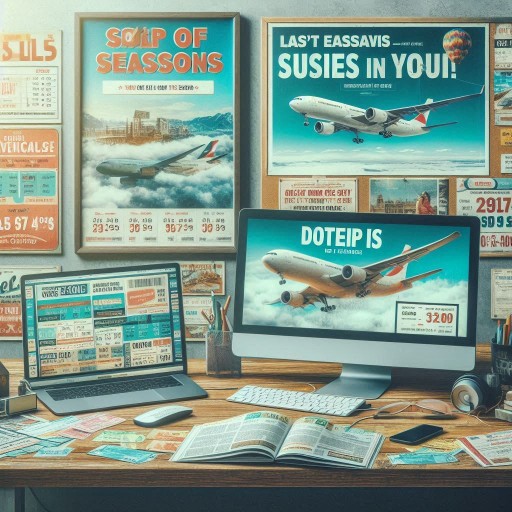How to travel on a budget safely
Readers like you help support Lifespectrum360.com. When you purchase using links on our site, we may earn an affiliate commission. Read More.
Think About BASE: When planning an international vacation, many travelers make the mistake of focusing solely on the budget. While finding ways to spend less on flights, visa fees, and accommodations is important, these should not be the only criteria when selecting a destination. It’s crucial to consider safety as well, to ensure you have a secure and enjoyable trip. In this guide, we’ll discuss all the aspects you need to keep in mind when choosing a safe, enjoyable, and budget-friendly travel destination.
We call it BASE – Budget-Friendly, Accessibility, Safety, and Enjoyability.
Budget-Friendly
- Cost of Living: Research the overall cost of living in the destination, including accommodation, food, and transportation. Look for the latest cost of living index, which provides a comparison to the cost of living in New York City (set at a base value of 100). Destinations with an index higher than 100 are more expensive than New York, while those with an index lower than 100 are more affordable. As a rule of thumb, if the cost of living index is 75 or less, the destination can be considered budget-friendly.
- Low Cost of Living
- Budget Accommodation
- Public Transport / Budget Airlines
- Good Flight Connectivity
- Mobile Connectivity
- Emergency Services
- Low Crime Index
- Low Health Risk
- Know Local Laws and Customs
- Choose Attractions
- Check Climate
- Local Cuisine and Culture
- Exchange Rates : When planning an international trip, it’s essential to check the exchange rates and understand how they will impact your overall travel budget. Use a reliable currency converter to estimate your expenses in your local currency and ensure that you can manage your finances while staying safe abroad. Keep in mind that fluctuating exchange rates can significantly affect the cost of your trip, so choose a destination where your currency holds strong.
- Accommodation : Finding affordable and safe accommodation is crucial when traveling on a budget. Consider options like hostels, guesthouses, or budget hotels that meet your comfort needs without breaking the bank. Use reputable websites like Expedia, TripAdvisor, and Kayak to compare prices, read reviews, and secure the best deals. Prioritizing budget-friendly and safe lodging is key to ensuring you know how to travel on a budget safely.
- Transportation Costs : Evaluate both the cost and convenience of local transportation options at your destination. Affordable and reliable public transport, like metros or trams, can help you save money while ensuring safe travel. However, if the transportation is time-consuming or lacks safety standards, it might be better to consider other options. Remember, you’re on vacation to explore and enjoy, not to spend endless hours stuck in traffic. Opt for destinations with efficient and safe transport systems to maximize your experience and stay within budget.

Additional Considerations
Accessibility: Evaluate the ease of reaching your destination, including flight availability and travel time. A destination with too many flight connections may not always be budget-friendly; it could indicate a popular location that is expensive for accommodation and food. Conversely, destinations with too few flights can also be risky. Ideally, choose a place with reasonably frequent flights, such as one every couple of hours.
Language: Consider the language spoken at your destination and whether you’ll need to overcome a language barrier. Familiarity with the local language can be very helpful when shopping or dining in local restaurants. Before traveling, learn some commonly used phrases using online tools like a French Words Generator or Spanish Word Generator. This can help you travel more smoothly and safely on a budget.
Connectivity: In today’s world, mobile connectivity is essential, especially in emergencies, like if your vehicle breaks down on a remote road, or you arrive at your hotel late at night and need to order food. Therefore, check the availability of internet access and mobile services at your destination before traveling. Good connectivity ensures you know how to travel on a budget safely.
Emergency Services: Familiarize yourself with local emergency services, such as fire, police, ambulance, and consular support. Keep their contact numbers and website details handy, either in printed form or saved on your mobile, to access this information quickly if needed.
Safety Considerations
Crime Rates: Research the crime rates at potential destinations, particularly in areas known for tourist activity. Review the global crime index when selecting your destination. Higher index values suggest a greater criminality rate and may pose more risk to tourists. To ensure a safer vacation, avoid countries with a criminality index greater than 5 or 5.5.
Political Stability: Look into the political climate and recent news about any unrest or instability in the area. Staying informed about local conditions can help you travel more safely.
Health Risks: Check for any health advisories, such as disease outbreaks or required vaccinations. You can find the latest updates by searching local news channels online. Knowing potential health risks in advance can help you understand how to travel on a budget safely.
Local Laws and Customs: Respecting local laws and customs is crucial for a smooth vacation. For example, if you’re traveling to an Islamic country during Ramadan, be aware of rules regarding eating and drinking in public, which may be strictly prohibited, even for non-Muslims.
Enjoyability
When planning a vacation, ask yourself: “What memorable theme do I want for my upcoming trip?” Here are some popular types of tourism to consider:
Cultural Tourism
- Historical Sites: Explore castles, palaces, and ancient ruins (e.g., Machu Picchu, Colosseum).
- Museums & Art Galleries: Visit art, history, and science exhibits (e.g., Louvre, Smithsonian).
- Cultural Festivals: Experience music, dance, food, and film festivals (e.g., Rio Carnival, Cannes Film Festival).
- Religious Sites: Visit temples, churches, mosques, and pilgrimage sites (e.g., Vatican City, Mecca, Varanasi).

Nature Tourism
- National Parks: Discover protected natural areas with diverse ecosystems (e.g., Yellowstone, Serengeti).
- Beaches & Islands: Relax at coastal destinations and enjoy water sports (e.g., Maldives, Bali).
- Mountains & Hiking Trails: Engage in adventure activities like trekking and climbing (e.g., Himalayas, Appalachian Trail).
- Wildlife Sanctuaries: Visit zoos, safaris, and marine reserves (e.g., Galápagos Islands, Kruger National Park).
Adventure Tourism
- Extreme Sports: Try skydiving, bungee jumping, and paragliding (e.g., Queenstown, New Zealand).
- Water Sports: Enjoy surfing, scuba diving, and white-water rafting (e.g., Great Barrier Reef, Costa Rica).
- Mountain Activities: Experience rock climbing, skiing, and snowboarding (e.g., Swiss Alps, Rockies).
Eco-Tourism
- Sustainable Destinations: Visit places with minimal environmental impact (e.g., Costa Rica, New Zealand).
- Conservation Projects: Volunteer for wildlife conservation and habitat restoration (e.g., Amazon Rainforest, Borneo).
Medical & Wellness Tourism
- Medical Facilities: Travel for medical treatments or surgeries (e.g., India, Thailand).
- Wellness Retreats: Enjoy yoga, meditation, and spa treatments (e.g., Bali, Kerala, Sedona).
Gastronomy Tourism
- Food Tours: Explore local cuisine and culinary traditions (e.g., Italy, Japan, France).
- Wine & Brewery Tours: Participate in wine tasting, vineyard visits, and brewery tours (e.g., Napa Valley, Bordeaux).
Urban Tourism
- City Breaks: Discover major cities for shopping, dining, and nightlife (e.g., New York, Tokyo, Paris).
- Landmark Buildings: Visit famous structures and skylines (e.g., Eiffel Tower, Burj Khalifa).
Rural Tourism
- Countryside Retreats: Stay in farmhouses, rural villages, and engage in agro-tourism (e.g., Tuscany, Provence).
- Traditional Crafts: Learn local crafts and attend workshops (e.g., weaving in Peru, pottery in Morocco).
Dark Tourism
- Historic Tragedy Sites: Visit sites associated with historical conflicts or disasters (e.g., Auschwitz, Chernobyl).
- Ghost Tours: Explore haunted locations (e.g., Edinburgh, New Orleans).
Space Tourism
- Suborbital Flights: Take commercial trips to the edge of space (e.g., Virgin Galactic, Blue Origin).
- Space Stations: Consider future possibilities like traveling to space stations or the Moon (e.g., SpaceX’s plans).
Event Tourism
- Sports Events: Attend the Olympics, FIFA World Cup, Grand Prix races, etc.
- Conventions & Exhibitions: Join trade shows, industry conferences, and comic cons.
Educational Tourism
- Study Tours: Participate in language courses or cultural immersion programs (e.g., exchange programs, study abroad).
- Research Trips: Engage in academic, scientific, or archaeological expeditions.
Volunteer Tourism (Voluntourism)
- Community Projects: Volunteer in teaching, building, or healthcare in underserved regions (e.g., Africa, Asia).
- Environmental Volunteering: Join ecological conservation efforts.
Additional Considerations for a Safe and Budget-Friendly Travel Experience
Climate: Check the weather conditions to ensure they align with your preferences and planned activities. Avoid destinations with frequent rainy weather for most vacations. Use websites like AccuWeather or The Weather Channel to get accurate weather information. Consider unique natural phenomena, such as volcanoes in Indonesia or dust storms in the Gulf countries.
Cuisine: Research local cuisine and dining options to ensure there are choices you will enjoy that are also budget-friendly. Exploring different foods can make your travel experience more memorable. For example, if you’re visiting Japan, you must try “sushi,” a unique combination of rice and fish that offers a distinct taste. Every destination has its own unique culinary specialties.
Local Culture: Consider the cultural experiences available, such as festivals, museums, and local traditions, including special attire or folk dances.
By considering all these factors, your travel will not only be budget-friendly but also memorable. Check out each destination’s page on our main “Travel and Leisure” section, where we have compiled all the important information.
Bonus Tips:
-
Book During Off-Seasons: Most tourist destinations get busy during peak seasons. For example, in Goa, India, the peak season runs from October to mid-January, when accommodation, transport, and food become very expensive. Traveling during the off-season can help you save up to 70% of the cost.
-
Explore Nearby Areas: International travel can be costly, so consider destinations in your home country that you haven’t explored yet but match your interests. For example, for religious tourism in the U.S., consider destinations like Salt Lake City (Utah), the Shrine of Our Lady of Guadalupe (La Crosse, Wisconsin), or Serpent Mound (Peebles, Ohio).
-
Carry Extra Cash: Sometimes card machines or online payment modes may not work due to technical issues. It is advisable to carry extra cash for a smooth experience at hotels, tourist sites, parking lots, etc.
-
Avoid Lesser-Known or Less Crowded Areas: When traveling to unfamiliar places, prioritize safety by avoiding less crowded or lesser-known areas. Booking with a reputable travel agent like First Choice, can help guide you safely and cost-effectively through local places.

By following these steps, you can enjoy a safe and budget-friendly vacation. If you have any other suggestions for this blog post “How To Travel On A Budget Safely”, please reach out to us at contact@lifespectrum360.com. Refer to our Step-by-Step Guide for Travel Planning for more details, including budgeting, funding plans, packing lists, jet lag recovery, and more.
Refer to our location-specific guides, such as Best Cities in Portugal for a Luxurious and Safe Travel on a Budget, How to Travel Safely in Africa, Travel Tips for Seychelles, and Travel Tips for Egypt for more details. For example, if you are planning a trip to Portugal, please read this article along with our Portugal-specific guide to get a complete view.
FAQs on How To Travel On A Budget Safely
To plan a budget-friendly trip:
- Set a budget: Decide how much you’re willing to spend on accommodation, transport, food, and activities.
- Choose budget destinations: Opt for places with a lower cost of living.
- Travel in the off-season: Avoid peak tourist seasons to save on flights and accommodation.
- Book in advance: Secure deals on flights, accommodations, and activities by booking early.
- Use budget-friendly accommodations: Consider hostels, guesthouses, vacation rentals, or even house-swapping.
- Look for free activities: Research free or low-cost attractions, local festivals, and events.
To keep your money safe while traveling:
- Use a money belt: Keep cash, cards, and important documents close to your body.
- Divide your money: Don’t keep all your cash in one place; split it between your bags and wallet.
- Use a travel card: Carry a prepaid travel card or credit card with minimal foreign transaction fees.
- Be cautious with ATMs: Use ATMs located in secure, well-lit areas or inside banks.
- Keep a backup: Have a backup credit card and emergency cash in a separate location.
To stay safe while traveling:
- Research your destination: Learn about local customs, laws, and potential safety issues.
- Stay aware: Be mindful of your surroundings, especially in crowded places or when using public transport.
- Avoid risky areas: Stay in well-lit, populated areas, especially at night.
- Keep in touch: Share your travel itinerary with family or friends and check in regularly.
- Purchase travel insurance: Ensure you have coverage for medical emergencies, trip cancellations, and theft.
To travel more often on a budget:
- Accumulate travel points: Use travel rewards credit cards to earn points for flights and accommodations.
- Be flexible: Be open to traveling during off-peak times or weekdays for cheaper rates.
- Opt for cheaper destinations: Focus on countries or cities with a lower cost of living.
- Look for deals: Sign up for travel deal alerts, newsletters, or apps that notify you of discounts.
- Choose budget accommodations: Stay in hostels, guesthouses, or consider couchsurfing.
To travel on a budget with family:
- Plan ahead: Book flights, accommodations, and activities in advance to get the best deals.
- Choose family-friendly destinations: Opt for destinations with free or low-cost family activities.
- Stay in vacation rentals: Choose accommodations with kitchen facilities to save on dining out.
- Use public transportation: Avoid expensive taxis by using buses, subways, or walking.
- Look for family discounts: Many attractions offer discounted or free admission for children.
The cheapest ways to travel long distances include:
- Budget airlines: Look for low-cost carriers that offer cheaper fares.
- Buses and trains: Consider long-distance buses or trains, which are often cheaper than flights.
- Carpooling or ride-sharing: Use carpooling apps or services to share the cost of a trip.
- Hitchhiking: While not for everyone, hitchhiking can be a free option in certain countries, but it comes with safety risks.
To travel for free or get paid:
- Work abroad: Look for jobs that provide travel opportunities, such as teaching English, au pairing, or seasonal work.
- Freelance or remote work: Work remotely while traveling to finance your trips.
- Travel blogging or vlogging: Share your experiences and monetize through ads, sponsorships, or affiliate marketing.
- Volunteer programs: Some organizations offer free accommodation and meals in exchange for volunteer work.
- House sitting or pet sitting: Take care of someone’s home or pets while they are away in exchange for free accommodation.
Traveling without money is often referred to as “budget travel,” “free travel,” or “zero-cost travel.” It involves relying on free accommodation, hitchhiking, couchsurfing, volunteering, or bartering services for essentials.
- Use local markets: Shop at local markets for food and souvenirs instead of tourist shops.
- Eat like a local: Enjoy street food or local eateries instead of expensive restaurants.
- Travel overnight: Save on accommodation by taking overnight buses or trains.
- Negotiate prices: Bargain for better prices at local markets or accommodations.
- Stay connected with deals: Follow travel blogs, social media, and deal websites for discounts and promo codes.
Some popular low-budget travel countries include:
- Southeast Asia: Thailand, Vietnam, Cambodia, Indonesia.
- Central and South America: Guatemala, Mexico, Peru, Bolivia.
- Eastern Europe: Romania, Bulgaria, Serbia, Poland.
- Africa: Morocco, Egypt, Kenya.
- South Asia: India, Nepal, Sri Lanka.
‘Travel on a budget’ means planning and taking trips while minimizing expenses. It involves finding ways to save money on flights, accommodations, food, and activities to make travel affordable and sustainable.
10 thoughts on “How To Travel On A Budget Safely”
DraftKings real money casino Casino: Crown your wins today. Play $5 for 500 spins on Cash Eruption + up to $1,000 in first-day credits back. Real thrills, real rewards!
DraftKings casino promo Casino: Play bold, win big. Claim 500 Cash Eruption spins after $5 + up to $1K first-day protection. The best is here!
luckyland slots mobile: Free coins today, big rewards tomorrow! Join for 7,777 Gold Coins + 10 Sweeps Coins right now. Spin thrilling games and cash in your Sweeps!
luckyland slots win real money: Free play, real prizes, pure excitement! Join as a new player and snag 7,777 Gold Coins plus 10 Sweeps Coins—no strings attached. Start spinning and watch the rewards roll in!
Play today, brag tomorrow. stake crash makes winning look easy.
Tired of slow fiat casinos? stake original games gives you instant crypto action and real high limits. Join the revolution today.
reachrocket.click – Appreciate the typography choices; comfortable spacing improved my reading experience.
adsfactory.click – Pages loaded fast, images appeared sharp, and formatting stayed consistent.
scalewave.click – Overall, professional vibe here; trustworthy, polished, and pleasantly minimal throughout.
trendfunnel.click – Appreciate the typography choices; comfortable spacing improved my reading experience.